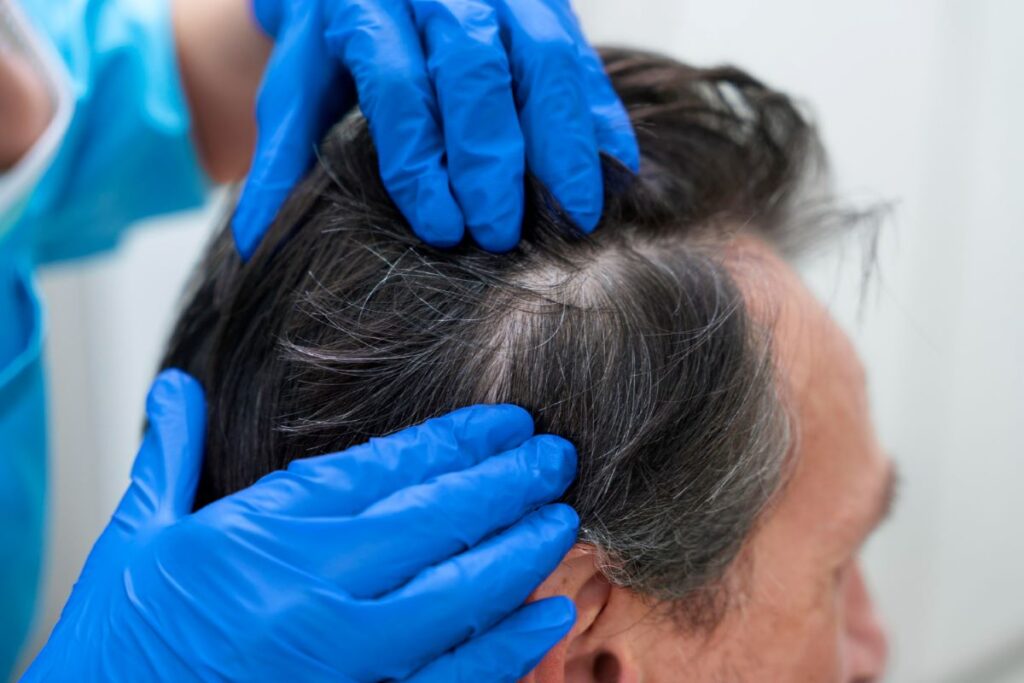Hair Transplants
Hair transplants have become a transformative solution for individuals experiencing hair loss. Understanding the science behind these procedures is crucial for anyone considering this option. By exploring the intricacies of hair transplants, individuals can make informed decisions about their hair restoration journey. Hair loss can be a challenging experience, affecting one’s appearance and confidence. Fortunately, advancements in medical science have paved the way for effective solutions, with hair transplants standing out as a popular and successful method. In this article, we delve into the science behind hair transplants, unraveling the mysteries of the procedure.
The Anatomy of Hair Loss
Hair loss is a multifaceted issue influenced by various factors. To comprehend the science behind hair transplants, one must first grasp the causes of hair loss and the natural hair growth cycle. From genetic predispositions to hormonal fluctuations, the anatomy of hair loss is diverse and requires tailored solutions.

Factors Influencing Hair Transplant Success
The success of a hair transplant depends on several factors. The patient’s overall health, medical history, and the expertise of the surgeon play pivotal roles. Additionally, post-transplant care is crucial for optimal results. Understanding these factors contributes to realistic expectations and successful outcomes.
The Science of Hair Transplantation
Hair transplantation involves designed to restore natural hair growth. Two primary techniques, Follicular Unit Transplantation (FUT) and Follicular Unit Extraction (FUE), are at the forefront. The science lies in the careful extraction and transplantation of hair follicles, ensuring a natural and aesthetically pleasing result.
The Emotional Impact of Hair Transplants
Beyond the scientific aspects, the emotional impact of hair transplants is significant. Successfully restoring one’s hairline can boost confidence and self-esteem, positively influencing various aspects of life. The psychological benefits are an integral part of the overall success of the procedure.

Conclusion
In conclusion, the science behind hair transplants intertwines medical expertise, technological advancements, and an understanding of individual needs. By demystifying the process, individuals can embark on their hair restoration journey with confidence. Choosing a qualified surgeon, prioritizing post-transplant care, and recognizing the emotional impact are essential steps toward a successful outcome.
FAQ
- How long does a hair transplant procedure take?
- The duration varies but generally ranges from 4 to 8 hours, depending on the complexity of the case.
- Is a hair transplant painful?
- Local anesthesia is used during the procedure, minimizing discomfort. Postoperative pain is usually manageable with prescribed medications.
- When can I expect to see results after a hair transplant?
- Visible results typically appear within 6 to 12 months as hair transplanted hair starts growing.
- Are there any side effects or risks associated with hair transplants?
- Common side effects include swelling and redness, which subside within a few days. Serious complications are rare but possible.
- Can anyone undergo a hair transplant?
- A thorough assessment by a qualified surgeon is necessary to determine candidacy based on individual health and hair loss patterns.
- How long do the transplanted hair transplanted last?
- Hair transplanted are usually permanent, as they are taken from areas resistant to balding.
- Is there a specific age range for hair transplant candidates?
- While there’s no strict age limit, candidates should be mature enough to make an informed decision about the procedure.
- What is the cost range for a hair transplant?
- Costs vary widely, depending on factors such as the extent of hair loss, chosen technique, and geographic location.
- Can I undergo multiple hair transplant procedures?
- In some cases, multiple sessions may be necessary to achieve desired density. This is discussed during the consultation.
- Are there alternatives to surgical hair transplants?
- Non-surgical options, such as topical treatments and medications, exist, but their effectiveness varies. A consultation can help determine the most suitable approach for individual cases.












